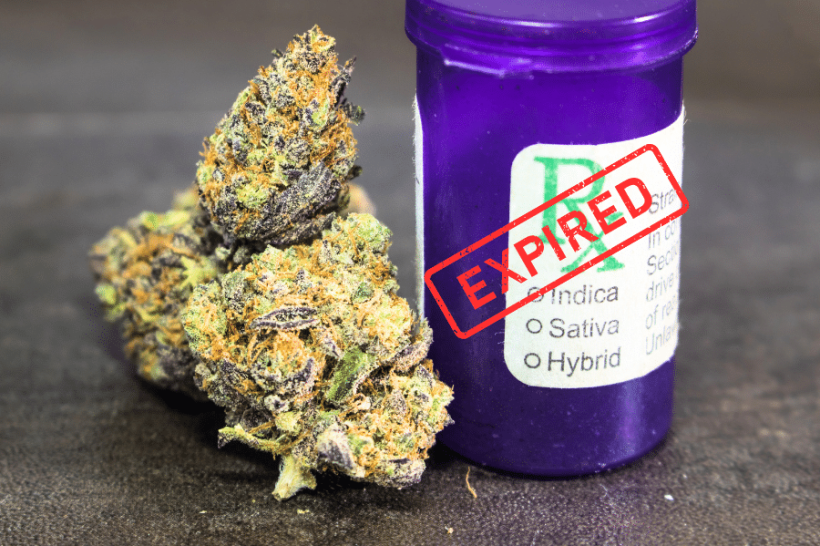Locate the Leading Medical Marijuana Clinic Clinton MS for Your Demands
Locate the Leading Medical Marijuana Clinic Clinton MS for Your Demands
Blog Article
Shedding Light on What Medical Marijuana Can Treat: a Thorough Analysis of Its Healing Characteristics
In recent times, there has been a growing interest in the restorative potential of clinical cannabis. Research study has actually suggested that this plant, with its selection of compounds, might hold promise in addressing different medical problems. From chronic pain monitoring to epilepsy treatment, and from nausea relief to anxiousness decrease, the range of its possible applications appears comprehensive. While anecdotal evidence is plentiful, a complete assessment of the scientific information regarding the efficiency of medical marijuana in treating these problems is called for. This evaluation intends to provide a nuanced understanding of the current landscape of clinical marijuana as a possible restorative representative, dropping light on its abilities in a more comprehensive fashion.
Persistent Pain Administration
Chronic pain administration stays a vital facet of treatment, demanding a detailed strategy for efficient therapy. Recently, clinical marijuana has become a prospective healing option for individuals experiencing chronic discomfort conditions. The endocannabinoid system, which plays an essential function in discomfort modulation, has been targeted by cannabis-based therapies to relieve symptoms and improve lifestyle for patients.

Furthermore, clinical marijuana provides an encouraging choice for clients who experience intolerable adverse effects from conventional discomfort medicines. Its capacity to attend to pain with a different device makes it a useful enhancement to the collection of therapies available for chronic pain management.
Epilepsy Therapy Possible
Clinical marijuana has revealed appealing possibility in the therapy of epilepsy, providing an unique therapeutic strategy for handling seizures in individuals. Epilepsy is a neurological problem identified by frequent seizures, affecting people of any ages. Traditional treatments for epilepsy consist of antiepileptic drugs, however these medications might not work for all individuals and can have considerable negative effects.
Study on making use of medical cannabis for epilepsy has actually disclosed motivating outcomes. Cannabidiol (CBD), a non-psychoactive substance discovered in cannabis, has actually been particularly highlighted for its anticonvulsant residential or commercial properties. Research studies have shown that CBD can decrease the regularity and severity of seizures in clients with treatment-resistant types of epilepsy, such as Dravet syndrome and Lennox-Gastaut disorder.
Furthermore, the FDA has approved a CBD-based drug, Epidiolex, for the therapy of seizures connected with these serious forms of epilepsy. This milestone emphasizes the expanding recognition of medical cannabis as a valuable therapeutic option for taking care of epilepsy and supplies hope for clients who have actually not responded well to traditional treatments.
Nausea Or Vomiting Relief Perks
The alleviation of nausea through the use of marijuana has been significantly acknowledged for its healing advantages in different clinical conditions. Queasiness and vomiting are common signs and symptoms experienced by clients undergoing radiation treatment, those with gastrointestinal conditions, and people with persistent discomfort conditions. Medical cannabis, with its active substances such as THC and CBD, has revealed assurance in offering relief from nausea or vomiting.

Furthermore, medical marijuana supplies a natural choice for people who do not react well to conventional anti-nausea medicines or who experience severe side results from these medicines. Clients undertaking chemotherapy, in specific, have reported substantial enhancements in their lifestyle when using marijuana to handle nausea or vomiting. As research around remains to grow, clinical cannabis is increasingly being taken into consideration as a useful choice for nausea alleviation in numerous clinical setups.
Anxiousness Decrease Results
Researches have shown the potential of marijuana in decreasing anxiety signs through its interaction with the endocannabinoid system. The endocannabinoid system plays a crucial duty in managing feelings, consisting of stress and anxiety, by keeping homeostasis in the body. Cannabinoids in cannabis, such as THC and CBD, engage with the endocannabinoid receptors in the mind, specifically the CB1 and CB2 receptors, to regulate anxiety-related feedbacks.

People with conditions like generalized anxiety problem (GAD), social stress and anxiety disorder, and trauma (PTSD) might gain from the anxiolytic properties of cannabis (Medical Marijuana Dispensary near me). Further research is needed to establish optimum does, shipment methods, and long-term results on anxiety monitoring.
Possible for Swelling Control
With its recognized anti-inflammatory properties, cannabis has actually shown promise in possibly regulating swelling within the body. Swelling is the body's natural feedback to injury or infection, however when it comes to be chronic, it can helpful hints add to numerous illness such as arthritis, inflammatory digestive tract illness, and even cardiovascular disease. Study suggests that the cannabinoids discovered in marijuana, such as THC and CBD, can aid manage the immune response and decrease inflammation.
Researches have revealed that cannabis can communicate with the endocannabinoid system, which plays an important duty in regulating inflammation. By targeting the cannabinoid receptors, marijuana compounds can regulate the immune response, bring about a reduction in inflammation degrees. This makes cannabis a potential prospect for handling inflammatory conditions where traditional treatments have failed.
Moreover, cannabis-derived items like CBD oil have acquired popularity for their anti-inflammatory buildings, with numerous individuals utilizing them as an all-natural go to this site treatment for problems connected with swelling. While more research is required to totally recognize the mechanisms behind cannabis's anti-inflammatory results, current findings reveal encouraging results for the possible use of medical cannabis in regulating inflammation.
Conclusion
Finally, medical marijuana has shown promising therapeutic residential or commercial properties in handling persistent pain, dealing with epilepsy, eliminating nausea, reducing anxiousness, and managing inflammation. Its possible advantages in various medical problems highlight the significance of further study and exploration into its medical usage. The evidence recommends that clinical cannabis can be a useful choice therapy option for clients seeking relief from a series of signs and symptoms and conditions.
In recent years, medical marijuana has arised as a prospective healing option for individuals experiencing from persistent pain conditions.Medical cannabis has shown appealing capacity in the treatment of epilepsy, offering a novel restorative approach for taking care of seizures in individuals. As research in this area continues to grow, medical marijuana is progressively being taken into consideration as a valuable choice for nausea or vomiting relief in numerous clinical setups.
In conclusion, clinical marijuana has shown promising therapeutic properties in handling persistent pain, treating epilepsy, alleviating nausea or vomiting, minimizing anxiousness, and managing inflammation. The proof suggests that clinical cannabis might be a useful alternative treatment alternative for clients seeking alleviation from a range of signs and problems.
Report this page